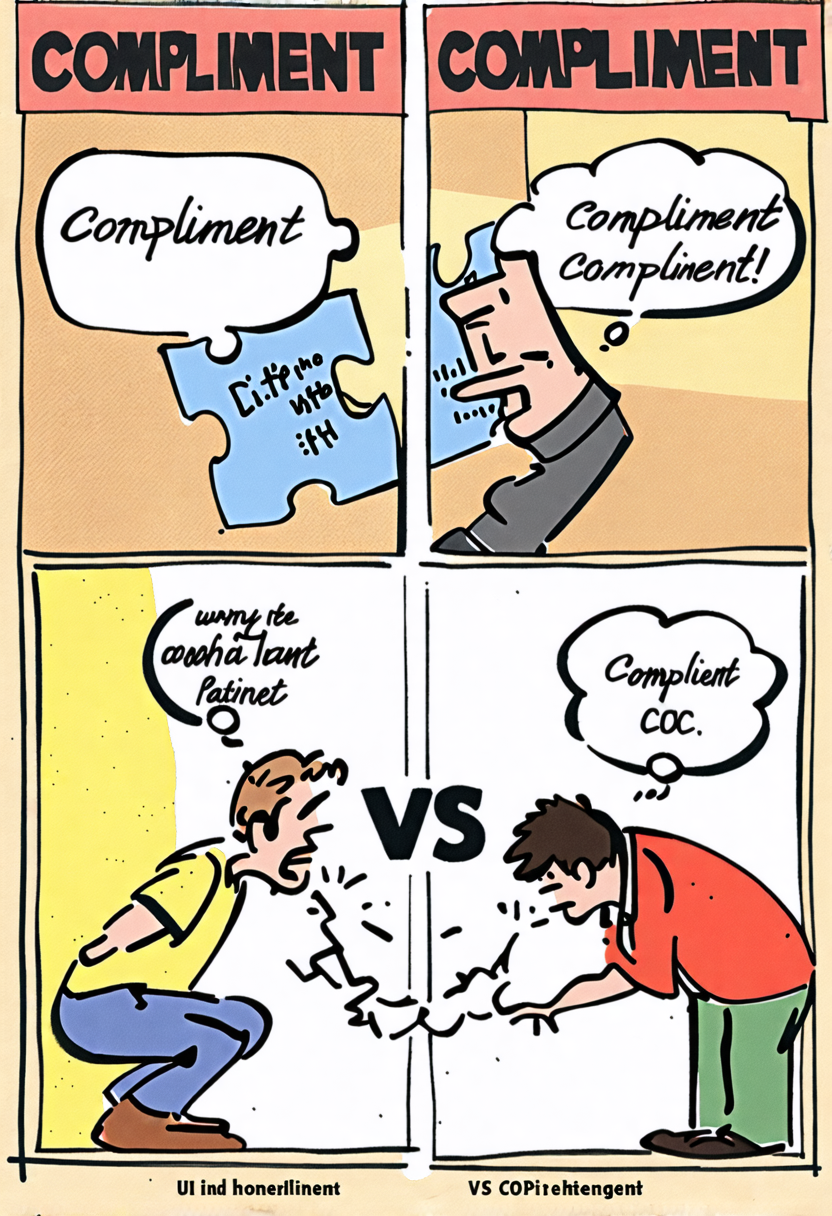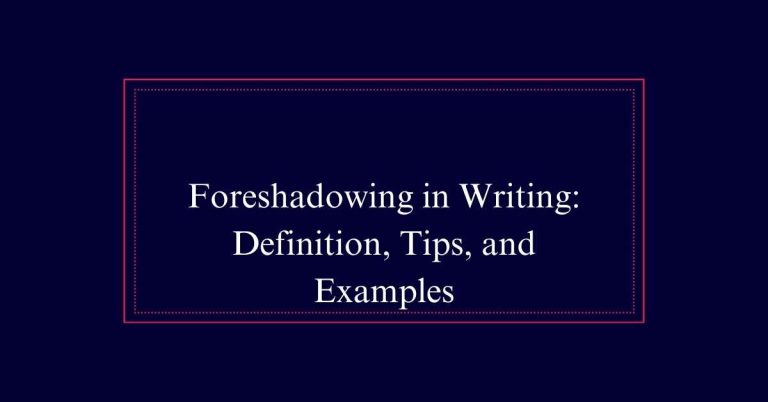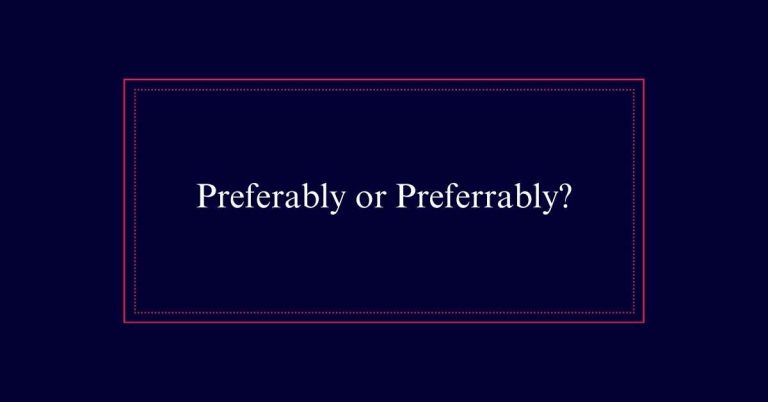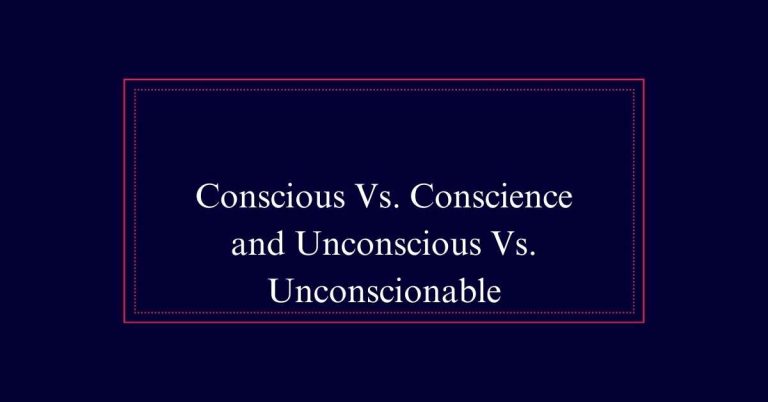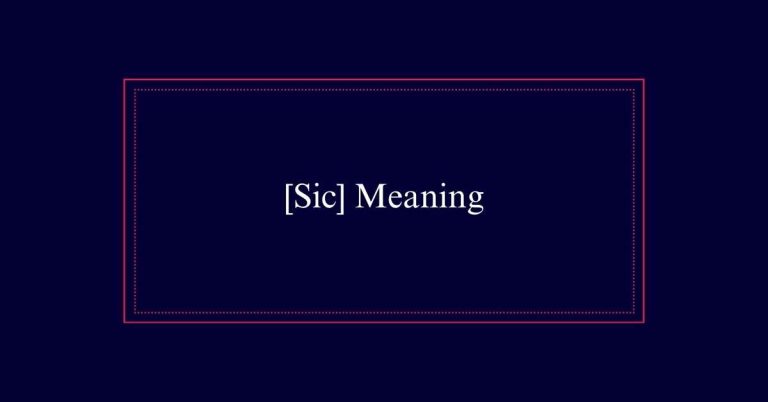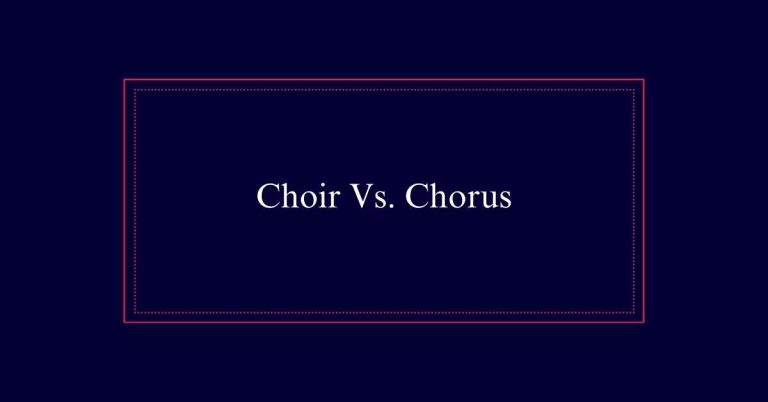Complement Vs. Compliment
“Complement” and “compliment” are easily confused but have different meanings. “Complement” refers to something that completes or enhances another thing. For instance, in design, a pillow might complement a sofa. “Compliment,” on the other hand, is an expression of praise or admiration, such as complimenting someone on their outfit.
Remember, “complement” ends with an ‘e’ which stands for ‘enhance,’ while “compliment” ends with an ‘i’ like in ‘admire.’
Understanding Complement
What exactly does the term ‘complement’ mean?
Complement refers to something that completes or perfects another entity. It originates from Latin roots meaning ‘to fill up’ or ‘to complete.’ In everyday language, a complement enhances or makes something else whole.
For example, a well-chosen wine can be a perfect complement to a fine meal.
Complement can function as both a noun and a verb. As a verb, it means to add something that completes: ‘Her leadership skills complement his technical expertise.’
In various fields, such as science, mathematics, and economics, the concept of complement is prevalent. It signifies an essential component that completes a system, making it entirely functional or balanced.
Complement Examples
Frequently, examples of complement can be found in various aspects of daily life and professional fields. In fashion, a stylish handbag complements an elegant dress.
In culinary arts, a pinch of salt can complement a sweet dessert, enhancing its flavor.
In interior design, a carefully chosen rug complements the color scheme of a room, creating harmony.
In business, a well-designed logo complements a company’s brand identity, making it more recognizable.
In music, a guitar riff complements the melody of a song, adding depth.
Complement in Science
In science, the term complement often refers to a system of proteins that enhances the immune response by matching antibodies. This complement system plays a vital role in defending against pathogens and maintaining homeostasis in the body. It consists of a series of small proteins that circulate in the blood.
- Bind to pathogens to mark them for destruction
- Enhance the ability of antibodies to clear microbes
- Promote inflammation to signal other immune cells
- Facilitate the removal of dead cells and debris
- Help in the lysis (breaking down) of harmful cells
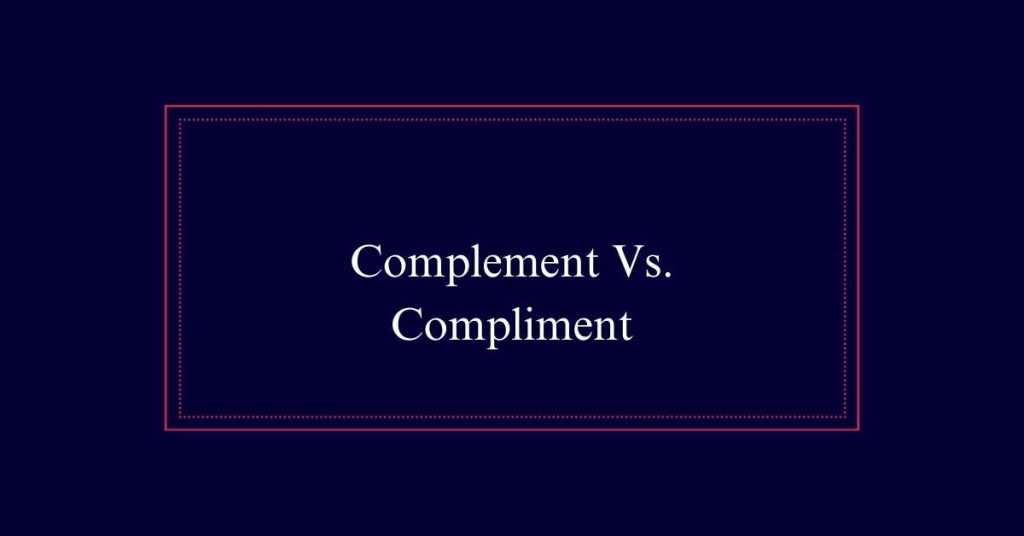
Usage of Complement as a Verb
When used as a verb, complement means to complete, enhance, or bring to perfection something else. It often implies adding something that improves or completes the original entity. For example, “Her skills in graphic design complement his expertise in web development,” suggests that their combined talents create a more complete and effective team.
Here is a visual representation of how ‘complement’ as a verb can be used:
| Context | Example | Explanation |
|---|---|---|
| Teamwork | “His ideas complement hers.” | Enhances the team’s overall output. |
| Art and Design | “The frame complements the painting.” | Enhances the artwork’s appearance. |
| Culinary | “Spices complement the dish.” | Brings out flavors in the food. |
Common Synonyms for Complement
Building on the idea of complementing something to enhance or complete it, it is useful to explore common synonyms that convey similar meanings. Understanding these synonyms can help in selecting the most appropriate word for different contexts. Here are some common synonyms for ‘complement’:
- Addition: Something added to improve or complete.
- Companion: A partner that enhances or matches.
- Completion: The state of being finished or perfected.
- Counterpart: An element that balances or corresponds.
- Enhancement: An improvement that increases value or quality.
Defining Compliment
What exactly does the term ‘compliment’ mean? A compliment is an expression of praise, admiration, or respect. It is often used to convey a positive observation about someone or something. Compliments can be given verbally, in writing, or through gestures, and they often aim to uplift or acknowledge the recipient.
Here is a quick comparison to help understand the nuances:
| Term | Meaning | Example |
|---|---|---|
| Compliment | Praise or admiration | “You did a great job!” |
| Adulation | Excessive flattery | “You’re the best ever!” |
| Homage | Respect or honor | “We pay homage to the hero.” |
| Flattery | Insincere praise | “You look amazing, as always.” |
| Praise | Expression of approval | “Excellent performance!” |
Compliment Examples
Examples of compliments can illustrate how to effectively convey praise, admiration, or respect. Compliments can be used in various contexts to acknowledge someone’s efforts or qualities. Here are some examples:
- Personal Appearance: ‘You have a great sense of style.’
- Professional Achievement: ‘Your presentation was impressive and well-organized.’
- Kindness or Character: ‘You always make others feel welcome.
- Talents and Skills: ‘Your cooking skills are exceptional.’
- Creativity: ‘Your artwork is truly inspiring.
Usage of Compliment as a Verb
Moving from compliment examples, understanding the verb form of compliment helps in expressing praise directly.
When used as a verb, ‘compliment’ means to convey admiration or approval to someone. For instance, you might compliment a colleague on their presentation by saying, ‘You did an excellent job.’ This action can boost morale and foster positive relationships.
Complimenting can also involve recognizing achievements or qualities, such as, ‘I compliment you on your dedication.’
Common Synonyms for Compliment
Synonyms for compliment include terms like praise, adulation, and homage. These words are often used interchangeably to express admiration or respect.
Compliments can be simple or elaborate but always convey positive feelings. Below are some common synonyms for compliment:
- Praise: Expressing favorable judgment or admiration.
- Adulation: Excessive flattery or admiration.
- Homage: Respect or honor publicly shown.
- Flattery: Favorable but often insincere comments.
- Commendation: Formal praise or approval.
Each term highlights a different nuance of expressing admiration. Praise and commendation are often used in formal contexts. Flattery and adulation might imply exaggeration. Homage denotes deep respect, often in a ceremonial context.
Tricks to Differentiate
One effective trick to differentiate ‘complement’ from ‘compliment’ is to remember the ‘I’ in ‘compliment’ stands for saying something nice. This mnemonic helps recall that a compliment is a form of praise or flattery.
In contrast, think of the ‘e’ in ‘complement’ as standing for ‘enhance.’ This can remind you that a complement completes or perfects something.
Another useful tip is to visualize scenarios: a compliment might involve someone saying, ‘You look great,’ while a complement could be a perfect wine pairing with dinner. These simple associations can aid in distinguishing between the two words in both written and spoken contexts, ensuring proper usage.
